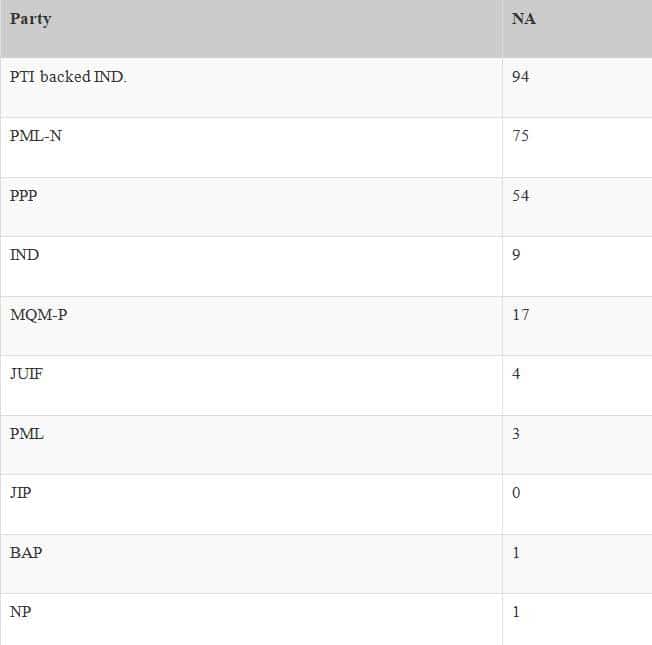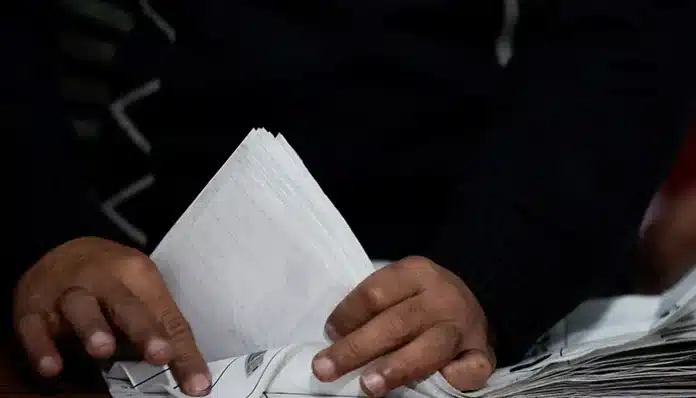As the Election Commission of Pakistan finalized and announced the results of the General Election 2024, a notable trend emerged: independent candidates, supported by various factions, secured a substantial portion of the seats.
This development occurred amidst a backdrop of allegations surrounding irregularities, mismanagement, and accusations of rigging during the electoral process.
According to the official results released by the electoral watchdog, independent candidates with backing from the Pakistan Tehreek-e-Insaf (PTI) managed to clinch 101 seats, marking them as the largest bloc in the newly formed parliament.
The Pakistan Muslim League-Nawaz (PML-N) followed closely behind, securing 75 seats, while the Pakistan Peoples Party (PPP) obtained 54 seats.

The margin between the seats won by PTI-backed independents and those secured by traditional party candidates such as PML-N and PPP gradually decreased as the final results were tallied, a process that took a staggering 65 hours due to the sheer volume of votes cast and the complexities involved in tabulating them accurately.
The Muttahida Qaumi Movement-Pakistan (MQM-Pakistan) made a notable showing by capturing 17 National Assembly seats, predominantly from Karachi and other regions in Sindh. Furthermore, the Jamiat Ulema-e-Islam-Fazl (JUI-F) managed to secure four seats, while Chaudhry Shujaat’s Pakistan Muslim League-Quaid (PML-Q) secured at least three seats.
However, amidst the announcement of the election results, discontent brewed as several political parties voiced their dissatisfaction, alleging widespread irregularities and rigging.
This discontent manifested in protests staged by parties such as the PPP, JUI-F, and Balochistan Awami Party (BAP), who organized sit-ins demanding recounts and challenging the declared outcomes.
In Karachi, a hotbed of political activity, the Jamaat-e-Islami, JUI, and PTI were among the parties that took to the streets, staging protests outside the Election Commission office.
These protests added to the growing chorus of dissent and frustration over the perceived lack of transparency and fairness in the electoral process, underscoring the challenges and tensions inherent in the democratic process in Pakistan.


